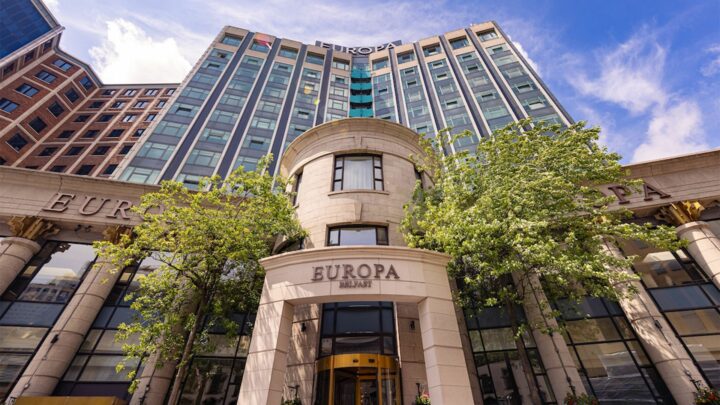Provoked Narratives: Programme 1 – Generational Resilience
Description
“Provoked Narratives” is an invitation, in this time of genocide and ongoing aggression, to understand the narratives created around Palestine as part of a long colonial project.
To consider the ways in which the camera, since its very inception, has played a conflicted role in the project of empire. To consider how images have been co-opted, and to see how images can also resist.
The programme presents films made from 1967 to 1984 in varying contexts and using different grammars of resistance, all live and resonant to this day. From shifting gazes on the Palestinian struggle – from UNRWA’s ‘humanitarian’ lens to cinemas in solidarity, and to the Palestinian filmmakers who devised new visual grammars in grief and in defiance. These films ponder questions of generational trauma and resistance, as well as the long history of solidarity between Palestine and Lebanon.
We are grateful to Belfast Film Festival’s invitation and solidarity. We hope that these screenings will deepen learning and stimulate discussion around our shared histories and possible futures. We believe in the power of film to encourage action, to build community, to organise and to mobilise.
PFI is a non-profit organization run by filmmakers on a voluntary basis. This programme is presented with the collaboration of Khadijeh Habashneh, the Jocelyne Saab Association, Third World Newsreels and Audiovisual Archive of the Workers’, Democratic Movement (AAMOD) and Subversive Film.
All proceeds from these screenings will be donated to the Ghassan Abu Sitta Children's Fund.
This Fund is dedicated to the children of Gaza: providing medical attention to the children who need it the most and helping to relieve the medical sector in Gaza. https://gascf.org/
Blown by the Wind
The wind whistles through Jacques Madvo’s 1971 short film, a montage of vibrant drawings by Palestinian children, offering a window into their daily lives, memories and imagination following their displacement to Lebanon after the Six Day War in 1967. Lebanon-raised Armenian filmmaker Madvo (1924-2014) was no stranger to the limbo and longing of exile.
Palestine, the homeland etched into children’s memories, is rendered in colourful tones, set to the sweet sound of a folk musician singing: “Oh wind, if you will, take me home (…) “Oh how I fear growing up in this exile, while my home never knows me.” Juxtaposed, later in the film, with the harsh sounds of warfare and dark scribbles recording violence lived and remembered, these naïve images reflect children wise beyond their years. The wind is understood to be a messenger to beloved lands left behind. In exile, nature is celebrated – drawings of tents are often surrounded by verdant trees, a blazing sun, bright birds. While deep knowledge and reverence for nature is woven into the fabric of Palestinian life, we see here that resistance through a love of nature is coded into art, culture, image and song from the youngest age.
Blown by the Wind was officially selected for the Venice Film Festival and won awards at the Leipzig Film Festival, as well as in Czechoslovakia and Tunisia.
Children without Childhood
Veteran filmmaker Khadijeh Habashneh was a central figure of the PFU and remains custodian of their archives consolidating a life-long commitment to the documentation and preservation of the Palestinian struggle. A clinical psychologist and an organizer with the Palestinian Women’s Union (GUPW), Habashneh gave particular focus to women’s conditions under occupation and to the realities of children. Produced by the Palestinian Cinema Institute and the General Union of Palestinian Women, Children without Childhood revolves around the life of children orphaned during the Tel al-Zaatar massacre in North-Eastern Beirut in the summer of 1976.
Living in Bait El-Somoud (‘house of steadfastness’), the home that was established for them by the GUPW, the children’s lives reflect on the multifaceted challenges of their young lives in diaspora camps and under the Israeli occupation. One child states, “my duty is not to die.” The film underlines the contradiction between the International Declaration of Child Rights and the reality of the living conditions of Palestinian children.
Ma'loul Celebrates its Destruction
Like countless Palestinian villages since 1948, Ma’loul has been erased from the map. Every year on Israel's ‘independence day’ (the only day that no permits are needed to move around that area freely) Ma'loul's expelled indigenous Palestinian inhabitants go back to their village, to show their children where they are from, to re-conjure the houses, the school, the bakery. They walk among their lemon trees. Apricots, almonds. As families share food, elders recount the history of the village.
While Ma’loul is one of Nazareth-born filmmaker Michel Khleifi’s shortest films, he notes that it was the hardest to edit and that he felt compelled to recount this colonial history in a succinct and undeniable way. In so doing, he nudges the difference between the idea of memory and memory itself; the knowledge of lived history in defiance of ideological history. While the film reflects on heritage, and the inheritance of trauma, it also underlines that for the indigenous Palestinians population of Ma’loul the only 'weapon' they have is what they have lived and experienced themselves – it is vital that they hold firmly to these. By placing a frame around these memories, the film itself becomes an act of remembrance. In underlining the role of storytelling against erasure, Khleifi reminds us of the power of framing, and narrating one's own history.
Ma’loul Celebrates its Destruction marked a decisive turning point - until then, the Palestinian struggle was represented through the dream of return; Ma’loul depicts return itself. While still holding firm to memory, storytelling and community as the fundamental threads of resistance, Khleifi’s masterpiece shifts the gaze from outside in, signalling a new chapter in Palestinian cinema and refusal of the erasure.
- Admission £16



























